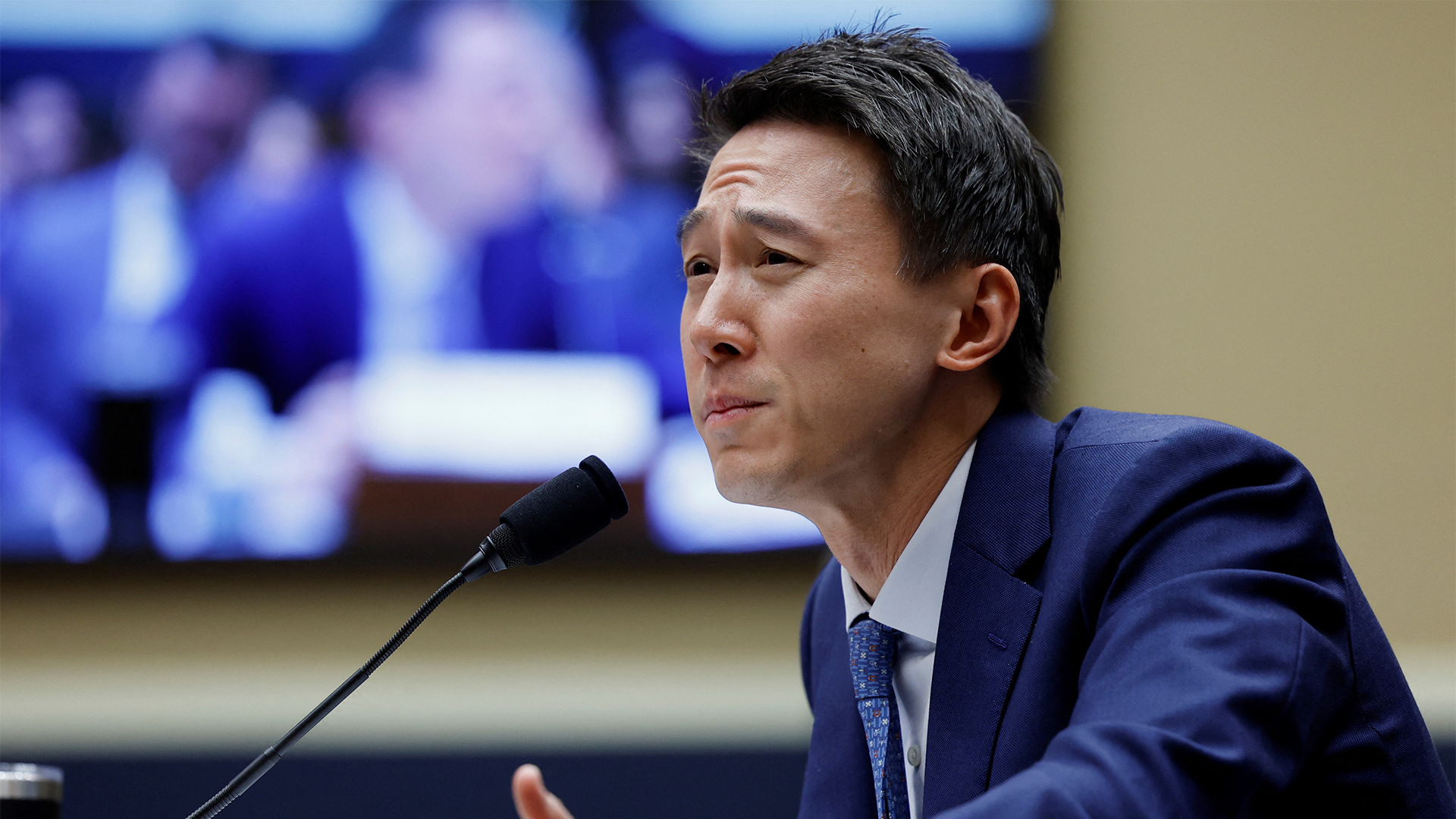WASHINGTON — Two hours before TikTok CEO Xu Zi Qiu's questioning session began on Thursday before the U.S. House of Representatives Energy and Commerce Committee, the Chinese government said it would strongly oppose any forced sale of TikTok, in response to President Joe Biden's administration's request that the app pull itself out of its owner, Beijing-based ByteDance, and sell it to a U.S. company, or face a nationwide ban.
China's Ministry of Commerce said that the forced sale of the app by Washington could hurt the confidence of Chinese investors in the United States, and said that any sale of TikTok falls under the export issues of technology that must be dealt with in accordance with Chinese law, and with the approval of the Beijing government.
In prepared remarks seen by Al Jazeera Net, Shaw said he makes several commitments aimed at addressing security concerns, including prioritizing safety, especially for teenagers, securing U.S. user data from foreign access, and promoting freedom of expression that is not affected by any government.
Lack of credibility
Democratic Senator Mark Warner pre-empted the TikTok CEO's questioning hearing, issuing a statement Wednesday night saying that "while Shaw appreciates Shaw's willingness to testify before Congress, TikTok's lack of transparency and its practice of repeated obfuscation and misrepresentation of facts have severely undermined the credibility of any statements by app staff, including Mr. Shaw himself."
Several members of Congress cite FBI Director Christopher Wray's testimony about TikTok before Congress two months ago, warning that "the Chinese government can control TikTok's content algorithm, allowing it to exert influence within the United States."
TikTok's CEO says that "while users in the United States account for 10% of the total users of the application around the world, their voice represents 25% of the total views around the world," and the number of users of the application reached 1.5 billion people last year, including 150 million Americans.
These numbers are another concern for lawmakers, who fear that TikTok could affect an entire generation of young Americans, as TikTok has become something of a cultural mainstay for online commentary, comedy and political expression.
The U.S. House of Representatives has set up a special committee focused on Chinese risks, and some lawmakers said in the committee's first session that Beijing could hack TikTok in order to primarily spy on users and gain access to U.S. users' data.
Other lawmakers have warned that the Chinese government could use the app to spread tendentious election propaganda among U.S. voters.
Review & Warning
After a two-year security review, White House officials told TikTok that it must divest from ByteDance or face severe punishment in the United States, including the possibility of a ban.
The clear warning issued by the Committee on Foreign Investment in the United States (CFIUS), a federal body tasked with monitoring security concerns of foreign investments, and composed of representatives of the Treasury, Justice, Homeland Security, Defense and Trade departments, marked a turning point in addressing U.S. concerns about TikTok's ties to Chinese authorities.
The Beijing-based TikTok owner is subject to Chinese laws, subject to Chinese data request laws that force companies to hand over information about customers to the government.
Non-stop attempts
Although the app on personal devices is not banned in countries around the world, with the exception of India following a border dispute with China in 2020, a number of other countries, including the United States, Canada and the United Kingdom, have banned the app on government devices.
In 2020, former President Donald Trump signed an executive order effectively banning TikTok in the United States, but TikTok fought the decision and succeeded in stopping it after filing several lawsuits.
In late 2022, the US president signed legislation banning TikTok from federal government agencies, and more than half of US states enacted a similar ban.
There are more than 1200,<> lawsuits against TikTok filed by American families alleging that the app's content profoundly affected their children's mental health, and in some cases helped them commit suicide.
"We are not agents of China"
TikTok's CEO said in a congressional hearing on Thursday that the app is led by an executive team based in the United States and Singapore, and noted that the company has offices around the world.
"I understand that there are concerns stemming from the inaccurate belief that TikTok's structure makes it beholden to the Chinese government, or that it shares information about American users with the Chinese government. This is categorically not true."
The Chinese government, for its part, says the U.S. side has so far failed to provide evidence that TikTok threatens U.S. national security.
TikTok is fighting to justify its presence in the United States by resorting to many lobbying companies to pressure various U.S. government institutions. TikTok has become one of the biggest spenders on lobbying and PR activities in Washington.
TikTok last year spent more than $5.3 million on lobbyists to improve its image and promote its image, according to Open Secrets, a nonprofit organization that tracks lobbyist spending.
Technical and bureaucratic guarantees
TikTok is seeking to address the concerns of U.S. lawmakers by offering voluntary technical and bureaucratic safeguards, which it says will help ensure that only U.S. users' data can be accessed by U.S. employees.
Shaw points to the $1.5 billion restructuring of the company known as Project Texas, which includes U.S. software giant Oracle, which will store and oversee the vast amount of personal data TikTok collects from U.S. users to be placed on Oracle's servers.

